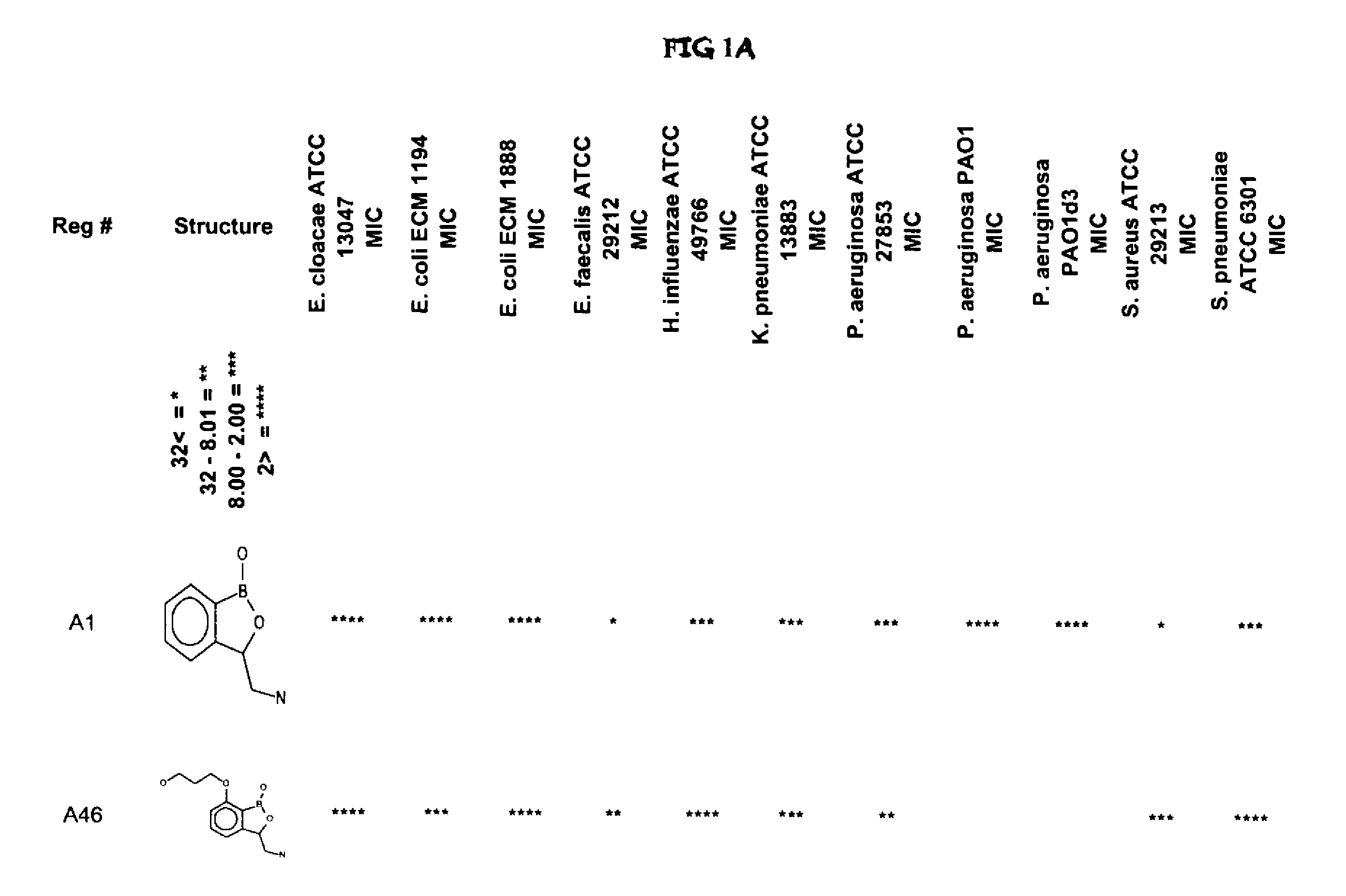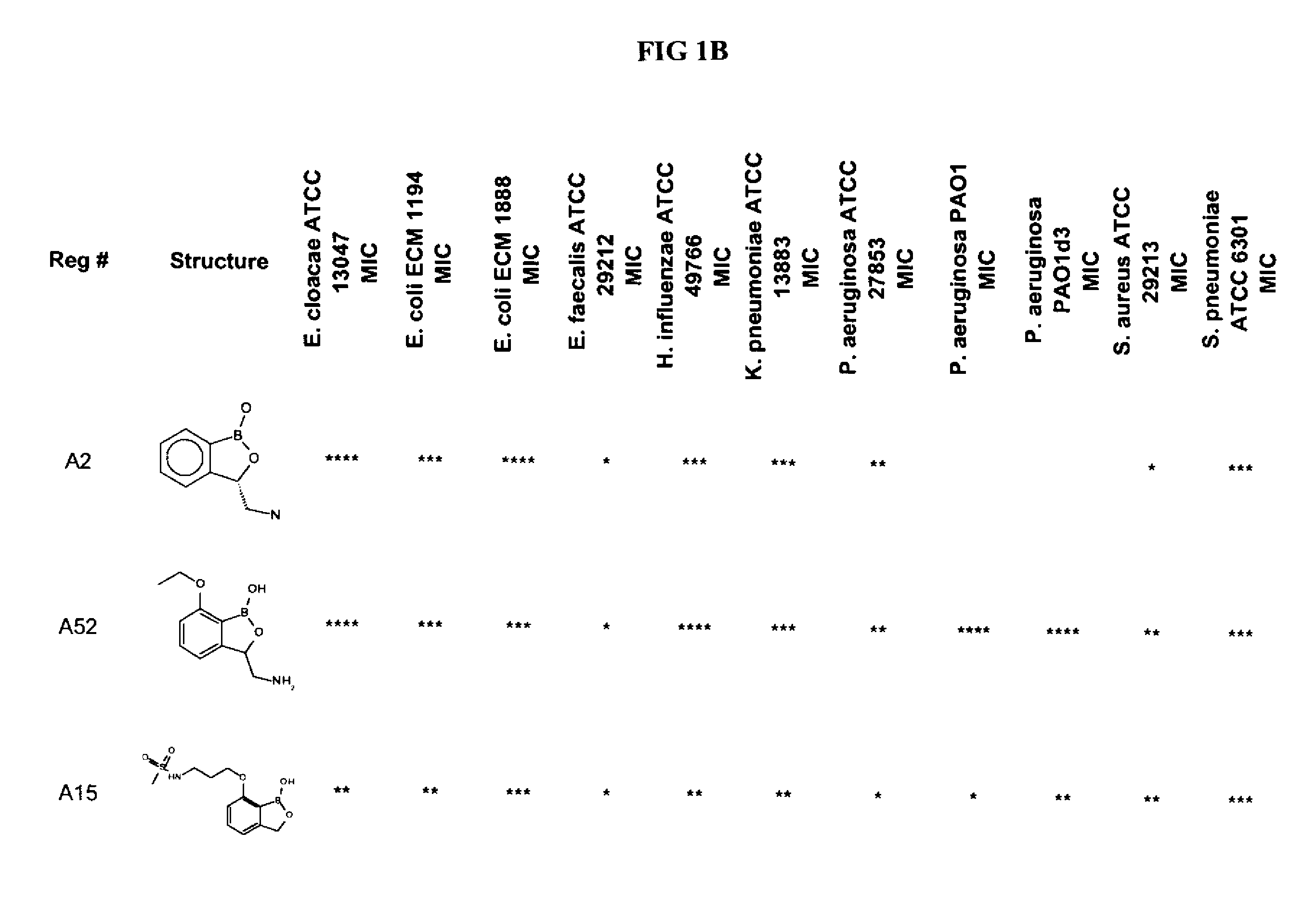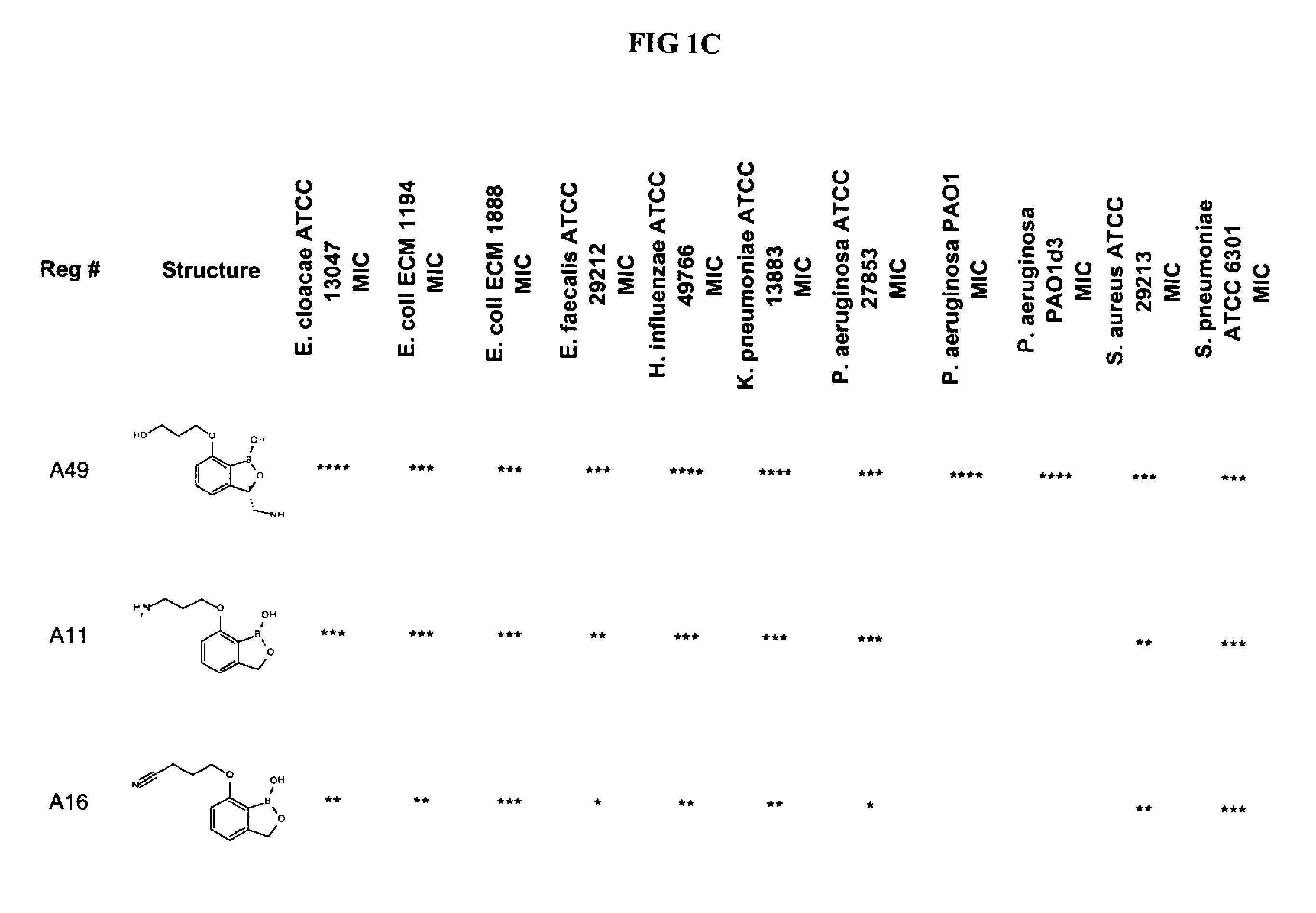Boron-containing small molecules
a small molecule and boron technology, applied in the field of boron-containing small molecules, can solve the problems of global rise of bacteria and other microorganisms resistant to antibiotics and antimicrobials in general, and pose a major threa
- Summary
- Abstract
- Description
- Claims
- Application Information
AI Technical Summary
Benefits of technology
Problems solved by technology
Method used
Image
Examples
example 1
3-Aminomethyl-3H-benzo[c][1,2]oxaborol-1-ol) hydrochloride (A1)
3-Nitromethyl-3H-benzo[c][1,2]oxaborol-1-ol
[0582]
[0583]2-formylphenylboronic acid (3 g, 20.0 mmol) was added to solution of sodium hydroxide (850 mg, 1.05 eq) in 10 mL of water at 10° C. To this suspension was added nitromethane (1.1 mL, 1 eq) and then warmed to room temperature with stirring. After 30 minutes, the reaction was cooled in an ice bath and acidified with 3M HCl. A white precipitate was filtered and air dried to 3.2 g (82.9%) of 3-(nitromethyl)benzo[c][1,2]oxaborol-1(3H)-ol.
[0584]m.p. 122-127° C. 1H NMR 300 MHz (DMSO-d6) δ 9.48 (s, 1H), 7.71-7.74 (d, J=6.9 Hz, 1H), 7.47-7.54 (m, 2H) 7.39 (t, J=7.65 Hz, 1H) 5.73-7.78 (dd, J=2.7, J=9.0 Hz, 1H), 5.30-5.35 (dd, J=3.0, J=13.5 Hz, 1H), 4.52-4.59 (dd, J=13.5, J=9.3 Hz, 1H). MS ESI (−) 192 [M−H].
[0585]
Synthesis of 3-Aminomethyl-3H-benzo[c][1,2]oxaborol-1-ol) hydrochloride (A1) using 10% palladium on carbon
[0586]3-(nitromethyl)benzo[c][1,2]oxaborol-1(3H)-ol (0.5 g, 2...
example 2
Antifungal and Antibacterial MIC Testing
[1144]All MIC testing of bacteria followed the Clinical and Laboratory Standards Institute (CLSI) guidelines for antimicrobial testing of aerobic bacteria (Methods for Dilution Antimicrobial Susceptibility Tests for Bacteria That Grow Aerobically; Approved Standard—Seventh Edition) (M07-A7) and anaerobic bacteria (Methods for Antimicrobial Susceptibility Testing of Anaerobic Bacteria; Approved Standard—Seventh Edition) (M11-A7).
[1145]MIC testing of yeasts and filamentous fungi can follow the National Committee for Clinical Laboratory Standards (NCCLS) guidelines for antimicrobial testing of yeasts (M27-A2 NCCLS) and filamentous fungi (Pfaller et al., NCCLS publication M38-A—Reference Method for Broth Dilution Antifungal Susceptibility Testing of Filamentous Fungi; Approved Standard. Wayne, Pa.: NCCLS; 2002 (Vol. 22, No. 16).
example 3
[1146]The affinities of the compounds for keratin powder can be determined by a method described in Tatsumi, Antimicrobial Agents and Chemotherapy, 46(12):3797-3801 (2002).
PUM
 Login to View More
Login to View More Abstract
Description
Claims
Application Information
 Login to View More
Login to View More - R&D
- Intellectual Property
- Life Sciences
- Materials
- Tech Scout
- Unparalleled Data Quality
- Higher Quality Content
- 60% Fewer Hallucinations
Browse by: Latest US Patents, China's latest patents, Technical Efficacy Thesaurus, Application Domain, Technology Topic, Popular Technical Reports.
© 2025 PatSnap. All rights reserved.Legal|Privacy policy|Modern Slavery Act Transparency Statement|Sitemap|About US| Contact US: help@patsnap.com



